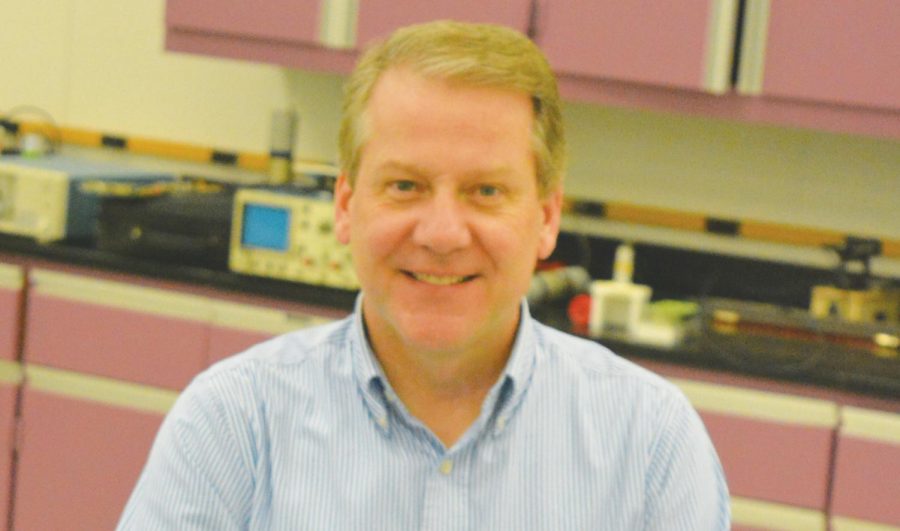Professor Spotlight: Philip Fulmer
Photo by: Caleb Reeves
Physics professor Phillip Fulmer uses his past experiences in the health physics field to prepare students for a future career in physics. Fulmer has taught at FMU for 16 years.
Since the fall of 2002 Professor of Physics Philip Fulmer has used both his educational background and experience to challenge students and expand the health physics department at FMU.
After graduating from FMU with a degree in health physics, Fulmer attended Texas A&M, where he earned both his master’s degree and Ph.D. Fulmer said he performed consulting work for over a decade before becoming the project manager at a department of energy.
Fulmer said he found health physics interesting because it is multi-disciplinary. He also said he found electronics and some senior level health physics classes were best suited for him, and nuclear radiation classes were related to a specialty of his. Fulmer also said he felt he could connect these interests and experiences to a physics field best adapted to his interests.
“It’s a rare day when I don’t have to bring in physics, chemistry, biology and mathematics into a lecture in some of the senior health physics classes because it all ties together,” Fulmer said. “The education I had was also broad-based like that, so it wasn’t so narrowly focused that I would only have interest in a single area. I ended up with a broad amount of interest, which suited me.”
Fulmer said his amount of experience before teaching provided him with knowledge of the material and skills needed to prepare his students for the workplace and appear desirable to future employers and graduate school.
“We visited what our students need to know, what gaps are we not teaching them in,” Fulmer said. “So, we’ve added several classes since I’ve been here just for that purpose. In fact, based on what we’ve designed, our students coming out of our program with a bachelor’s in health physics are almost comparable to graduate level students with a semester or two under their belts.”
Fulmer said some of his students have reached out to him after graduating to thank him and the department for preparing them for their careers and creating a challenging learning environment. He said the department created a structure to alleviate the steepness of the learning curve graduates will experience in the workplace.
Fulmer said two graduates have gone on to work at the Berkeley National Laboratory in California, one became the Chief Medical Physicist at McLeod Hospital and several others work around the country, and surrounding areas, at nuclear power plants.
Fulmer said he is always engaged in his students’ interests. He said he will typically find something related to the student’s interest and help them adapt it to a specific project. Additionally, he regards these research projects as opportunities to give the student a beneficial experience.
